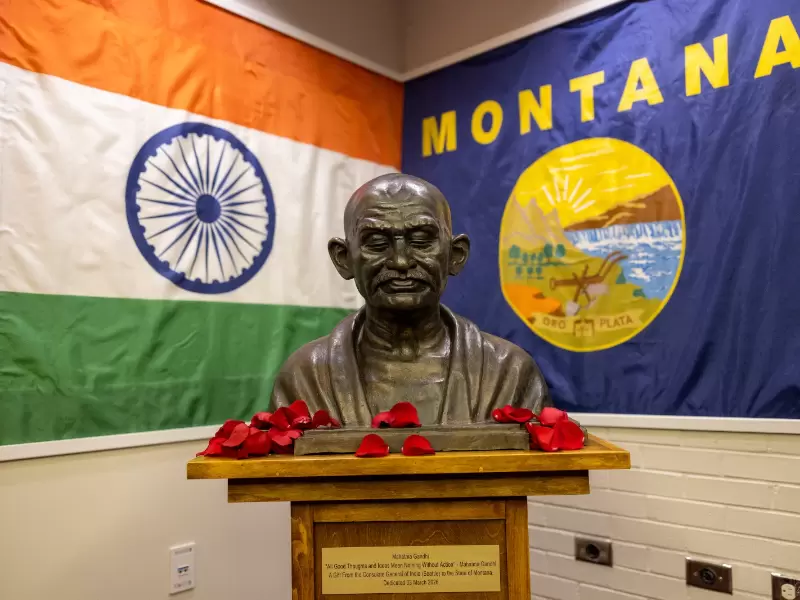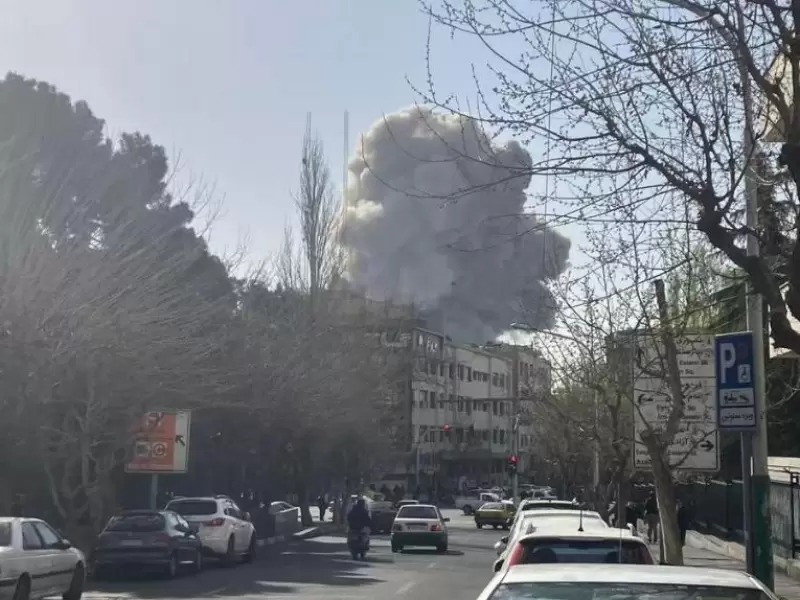Indian American anthropologist studies heat response in Philadelphia
Mallika Sarma is part of Penn University's Extreme Heat Working Group.
.jpg) Mallika Sarma / Penn Today
Mallika Sarma / Penn Today
Indian American anthropologist Mallika Sarma launched a new research initiative in Philadelphia to study how residents respond to extreme urban heat.
The project builds on her previous work examining human adaptation in high-stress environments, from outer space to remote regions of Nepal and the Congo.
Also Read: Nikhita Kathuria-Prakash joins Florida Cancer Specialists and Research Institute
An assistant professor in the department of anthropology at the University of Pennsylvania, Sarma leads the Health and BioBehavior Lab (HaBBLab), where her research focuses on how humans adapt—physiologically and behaviorally—to novel, energy-intensive, and unpredictable settings.
Her current study in Philadelphia involves collecting data on thermal exposure, hormone levels such as cortisol and testosterone, physical activity, and self-reported experiences. The goal is to understand how environmental, physiological, and social factors interact amid intensifying heat conditions.
“There is a huge range of variation in how people are responding to an environment,” Sarma said. “It’s important to understand what exactly is driving it.”
The project builds on methodologies developed during her postdoctoral fellowship at the Human Spaceflight Lab at Johns Hopkins University, where she studied how stress and team dynamics affect vestibular function—critical for balance and orientation in space. She co-authored a Nature study on the 2021 SpaceX Inspiration4 mission, which used wearable monitors and ultrasound imaging to assess short-term physiological and neurocognitive changes. The findings suggested minimal health risks during brief missions but called for more integrated approaches for long-duration spaceflight.
Sarma is among scholars advocating for a broader definition of “extreme environments.” In a recent special issue of the American Journal of Human Biology, co-edited with human biologist Alexandra Niclou, she wrote that “the term ‘extreme environments’ conjures up images of rugged terrains, limited access to necessary daily resources, and quixotic climatic conditions.” But the editors argue that “our definitions of extremes should change with our changing world,” pointing to climate change, obesity, and systemic instability as factors that should also be considered.
“Extreme environments aren’t just in outer space or remote mountains—they’re also in our cities,” the editors wrote.
Since relocating to Center City Philadelphia in 2024, Sarma said the experience of adjusting to the summer heat led her to connect the physiological challenges of heat stress with the same questions she had studied in spaceflight: how human bodies acclimatize, how behavior shifts, and how we build our environments.
“I wanted to add a psychophysiological lens,” she said, noting that Penn already has “such amazing work… looking at sustainability and design.” She was recently named an Environmental Innovations Initiative Faculty Fellow and is part of the university’s Extreme Heat Working Group.
Sarma’s ongoing research aims to inform public health infrastructure and social support systems as cities confront rising temperatures. “When the going gets tough, how do we stay going?” reads a whiteboard in her lab—a question now at the heart of both her planetary and neighborhood-scale inquiries.
She earned her bachelor’s degree in evolutionary anthropology and psychology from the University of Michigan, where she was also active in the Indian-American Student Association, organizing cultural and community events.
She holds a master’s and doctorate in anthropology with a specialization in human biology from the University of Notre Dame.
A trained Bharatanatyam dancer, Sarma is also a student pilot and Olympic-style weightlifter.
ADVERTISEMENT
ADVERTISEMENT
E Paper
Video




 Malvika Choudhary
Malvika Choudhary
.jpg)












Comments
Start the conversation
Become a member of New India Abroad to start commenting.
Sign Up Now
Already have an account? Login